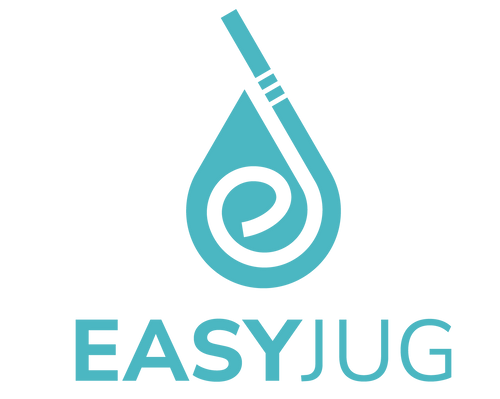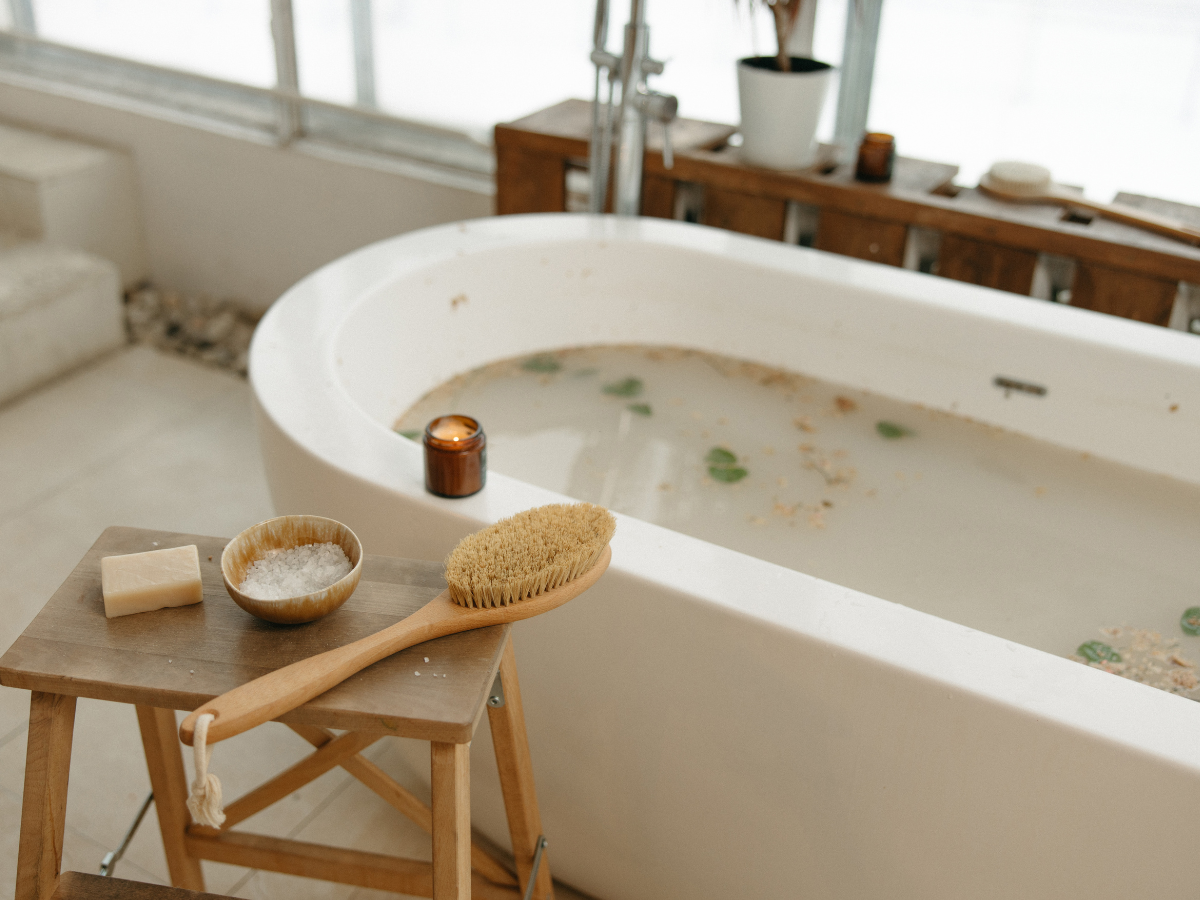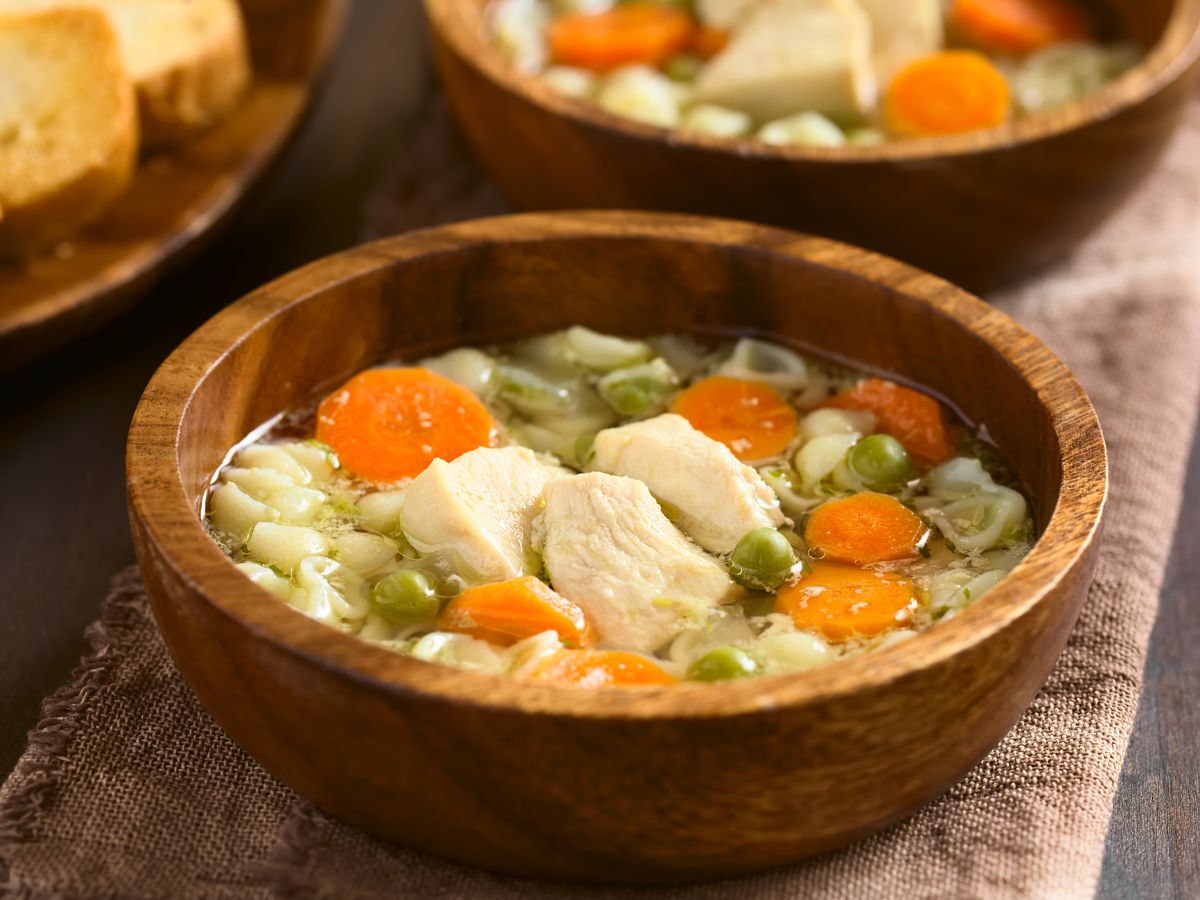Introduction
Welcoming a new baby into the world is an extraordinary experience, filled with joy and love. As a new mom, you're embarking on a beautiful journey of motherhood, and it's essential to prioritize your well-being during the postpartum period. One incredible way to support your healing process is through the comforting and rejuvenating practice of a herbal bath.
In this blog post, we'll explore the benefits of a herbal bath postpartum and guide you through the process of creating a soothing, organic bath experience that promotes relaxation, healing, and self-care.
The Healing Power of Herbs
Herbs have been used for centuries as natural remedies, and their therapeutic properties make them an ideal choice for postpartum recovery. A herbal bath can provide much-needed relief from perineal swelling, vaginal tears, c-section scars, and overall discomfort. It can also help soothe the mind, reduce stress, and provide a calming escape amidst the demands of caring for a new baby.
The Benefits of a Herbal Bath Postpartum
The herbal blend in your bathwater works wonders for your body and mind. Calendula officinalis, also known as marigold, has anti-inflammatory and antiseptic properties, helping to reduce redness, irritation, and promote healthy skin. Lavender is renowned for its relaxing effects, easing tension and promoting better sleep. Yarrow and shepherd's purse contribute to the improvement of blood circulation and aid in the healing process.
Not only does a herbal bath provide physical benefits, but it also offers a much-needed opportunity for self-care. Amidst the demands of caring for a new baby, taking time for yourself is crucial. A herbal bath can become a sanctuary where you can focus on nurturing your body, mind, and spirit.

Creating Your Herbal Bath
To prepare your herbal bath, you'll need a few key ingredients: organic calendula flowers, organic yarrow flowers, organic lavender, organic witch hazel leaf, organic comfrey leaf, and organic shepherd's purse. These herbs are carefully selected for their healing and astringent properties, making them an excellent choice for postpartum care.
Here's a simple step-by-step guide to creating your own herbal bath soak
-
Start by filling a shallow bath with warm water. Ensure that the temperature is comfortable and not too hot.
-
Take a reusable muslin bag and fill it with 1-2 handfuls of your organic herbs. You can adjust the quantity based on your preference and the intensity of the herbal infusion you desire.
-
Place the filled muslin bag in the warm bath water, allowing the herbs to release their beneficial properties as they soak.
-
Gently immerse yourself in the herbal bath and take a few moments to relax and unwind. Set aside at least 15-20 minutes for this self-care ritual.

Enhancing Your Postpartum Bath Experience
Here are a few additional suggestions to elevate your herbal bath experience:
-
Prepare a soothing cup of herbal tea to enjoy while you soak. Red raspberry leaf or chamomile can complement the calming effects of the bath. You can also use an EasyJug to stay hydrated while you bathe. It is a large water bottle with a long straw so it is easy to place on the floor. Use the long straw to drink water while you relax.
-
Consider using a peri bottle filled with warm water to rinse your perineal area after the bath. This gentle cleansing method promotes cleanliness and comfort during the healing process.
-
If you've had a vaginal birth, you can also try herbal compresses. Soak a clean cloth in warm water infused with your chosen herbs and apply it to your perineal area for added relief.
-
To alleviate perineal swelling, you can try the frozen pad method. Dampen sanitary pads with the herbal infusion, place them in freezer bags, and freeze. These pads can offer cooling relief when needed.

Herbs to Support Postpartum Recovery
By incorporating specific herbs known for their healing properties, you can enhance the overall experience and support your body's recovery. In this blog, we'll explore some of the best herbs to use in a herbal bath postpartum, backed by their therapeutic benefits and trusted references.
- Calendula (Calendula officinalis):Calendula is a gentle yet powerful herb widely used in postpartum care. It possesses anti-inflammatory properties, aids in tissue repair, and promotes wound healing. The herb's soothing nature helps relieve pain and discomfort associated with childbirth. References:
- Chamomile (Matricaria chamomilla):Chamomile is renowned for its calming and relaxing effects. Adding chamomile to your herbal bath can alleviate stress, promote better sleep, and soothe any postpartum anxiety. It also possesses anti-inflammatory properties, making it beneficial for reducing swelling and soothing irritated skin. References:
- Lavender (Lavandula angustifolia):Lavender is a popular herb known for its calming aroma and soothing properties. Adding lavender to your herbal bath can help promote relaxation, reduce muscle tension, and relieve postpartum discomfort. Lavender's antimicrobial properties also aid in preventing infection and promoting healing. References:
- Comfrey (Symphytum officinale):Comfrey is a herb widely used for its healing and regenerative properties. Adding comfrey leaves or roots to your herbal bath can help soothe perineal tears, promote tissue repair, and minimize postpartum swelling. It is important to note that comfrey should not be used if there are open wounds. References:
- Rosemary (Rosmarinus officinalis):Rosemary is a fragrant herb with antiseptic and invigorating properties. Including rosemary in your herbal bath can improve blood circulation, provide a refreshing sensory experience, and promote mental clarity and focus. It also aids in reducing postpartum muscle soreness. References:
Remember, always consult with your trusted health practitioner before incorporating any herbal medicine into your routine, especially if you have allergies, serious medical conditions, or are taking medications.
Conclusion
The postpartum period is a time of adjustment and recovery for both body and mind. Incorporating a herbal bath into your self-care routine can be a wonderful way to support your healing journey and provide a moment of tranquility amidst the busyness of being a new mom.
EasyJug, the hands-free water bottle for breastfeeding moms, offers a convenient and comfortable way to ensure you stay hydrated during your herbal bath and throughout the day. EasyJug is here to empower you as you navigate the joys and challenges of motherhood. Enjoy the convenience of having a large water bottle with a long straw to bring you comfort while you recover postpartum.




